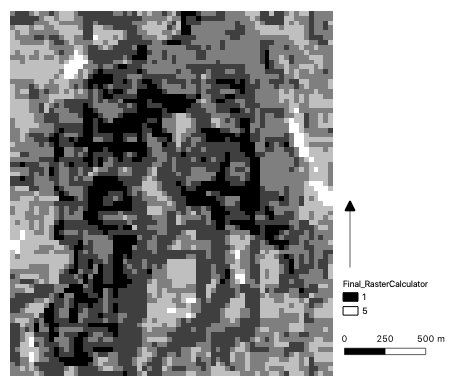SMT201 AY2018-19T1 EX2 Tan Jie Ting Christine
Contents
Part 1: Decision Factors
Economic Factor
The selected site should avoid steep slope. This is because construction at steep slope tends to involve a lot of cut-and-fill and will lend to relatively higher development cost. According to Legal Eagle Contractors, Co. [1], "Less than 10% incline is considered slight and is the easiest to build on, while 11-20% is considered moderate. Anything above 20% is deemed steep.". Hence, I used that as the measure to deem if an area is too steep for building the site.
Using the following matrix, I used a ranked model to compute a score for the economic factor.
| Percentage of Incline | Score |
|---|---|
| Less than 10% | 2 |
| 10-20% | 1 |
| More than 20% | 0 |
Accessibility Factor
The selected site should be close to existing local roads, namely: service roads and tracks. This is to ensure easy transportation of building materials during the construction stage. I assume that for the site to be accessible, the site must be at least 200m away from local roads.
Health Risk Factor
The selected site should be away from population i.e. housing areas and offices in order to avoid disease spreading to the nearby population. I assume that for the site to be sufficiently far away from buildings, it needs to be minimally 250m away from buildings.
Natural Conservation Factor
The selected site should be away from forested land, park and water. I assume that for the site to be sufficiently far away from natural conservation sites, the site must be at least 200m away from natural sites.
Final Output
I used the Raster Calculator to calculate the final scores to deduce where would be the best area to build the site, with the formula "Accessibility@1" + "Economic_Rank@1" + "HealthRisk@1" + "Natural_Binary@1".
References: [1] https://legaleaglecontractors.com/building-house-on-slope-challenges/
